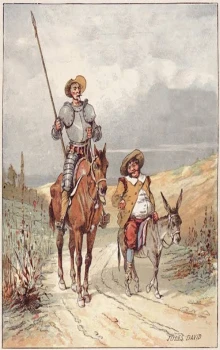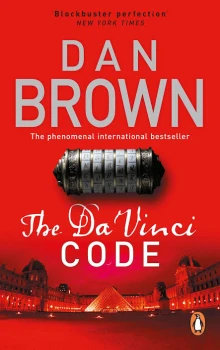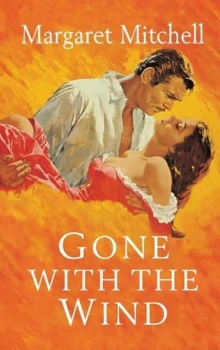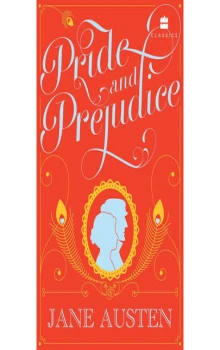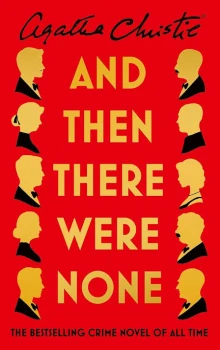OF THE SHREWD DISCOURSE WHICH SANCHO HELD WITH HIS MASTER, AND OF THE
ADVENTURE THAT BEFELL HIM WITH A DEAD BODY, TOGETHER WITH OTHER NOTABLE
OCCURRENCES
"It seems to me, senor, that all these mishaps that have befallen us of late
have been without any doubt a punishment for the offence committed by
your worship against the order of chivalry in not keeping the oath you made
not to eat bread off a tablecloth or embrace the queen, and all the rest of it
that your worship swore to observe until you had taken that helmet of Ma-
landrino's, or whatever the Moor is called, for I do not very well
remember."
"Thou art very right, Sancho," said Don Quixote, "but to tell the truth, it
had escaped my memory; and likewise thou mayest rely upon it that the af-
fair of the blanket happened to thee because of thy fault in not reminding
me of it in time; but I will make amends, for there are ways of compound-
ing for everything in the order of chivalry."
"Why! have I taken an oath of some sort, then?" said Sancho.
"It makes no matter that thou hast not taken an oath," said Don Quixote;
"suffice it that I see thou art not quite clear of complicity; and whether or
no, it will not be ill done to provide ourselves with a remedy."
"In that case," said Sancho, "mind that your worship does not forget this
as you did the oath; perhaps the phantoms may take it into their heads to
amuse themselves once more with me; or even with your worship if they
see you so obstinate."
While engaged in this and other talk, night overtook them on the road be-
fore they had reached or discovered any place of shelter; and what made it
still worse was that they were dying of hunger, for with the loss of the alfor-
jas they had lost their entire larder and commissariat; and to complete the
misfortune they met with an adventure which without any invention had re-
ally the appearance of one. It so happened that the night closed in somewhat
darkly, but for all that they pushed on, Sancho feeling sure that as the road
was the king's highway they might reasonably expect to find some inn with-
in a league or two. Going along, then, in this way, the night dark, the squire
hungry, the master sharp-set, they saw coming towards them on the road
they were travelling a great number of lights which looked exactly like stars
in motion. Sancho was taken aback at the sight of them, nor did Don
Quixote altogether relish them: the one pulled up his ass by the halter, the
other his hack by the bridle, and they stood still, watching anxiously to see
what all this would turn out to be, and found that the lights were approach-
ing them, and the nearer they came the greater they seemed, at which spec-
tacle Sancho began to shake like a man dosed with mercury, and Don
Quixote's hair stood on end; he, however, plucking up spirit a little, said:
"This, no doubt, Sancho, will be a most mighty and perilous adventure, in
which it will be needful for me to put forth all my valour and resolution."
"Unlucky me!" answered Sancho; "if this adventure happens to be one of
phantoms, as I am beginning to think it is, where shall I find the ribs to bear
it?"
"Be they phantoms ever so much," said Don Quixote, "I will not permit
them to touch a thread of thy garments; for if they played tricks with thee
the time before, it was because I was unable to leap the walls of the yard;
but now we are on a wide plain, where I shall be able to wield my sword as
I please."
"And if they enchant and cripple you as they did the last time," said San-
cho, "what difference will it make being on the open plain or not?"
"For all that," replied Don Quixote, "I entreat thee, Sancho, to keep a
good heart, for experience will tell thee what mine is."
"I will, please God," answered Sancho, and the two retiring to one side of
the road set themselves to observe closely what all these moving lights
might be; and very soon afterwards they made out some twenty encamisa-
dos, all on horseback, with lighted torches in their hands, the awe-inspiring
aspect of whom completely extinguished the courage of Sancho, who began
to chatter with his teeth like one in the cold fit of an ague; and his heart sank
and his teeth chattered still more when they perceived distinctly that behind
them there came a litter covered over with black and followed by six more
mounted figures in mourning down to the very feet of their mules—for they
could perceive plainly they were not horses by the easy pace at which they
went. And as the encamisados came along they muttered to themselves in a
low plaintive tone. This strange spectacle at such an hour and in such a soli-
tary place was quite enough to strike terror into Sancho's heart, and even
into his master's; and (save in Don Quixote's case) did so, for all Sancho's
resolution had now broken down. It was just the opposite with his master,
whose imagination immediately conjured up all this to him vividly as one
of the adventures of his books.
He took it into his head that the litter was a bier on which was borne
some sorely wounded or slain knight, to avenge whom was a task reserved
for him alone; and without any further reasoning he laid his lance in rest,
fixed himself firmly in his saddle, and with gallant spirit and bearing took
up his position in the middle of the road where the encamisados must of ne-
cessity pass; and as soon as he saw them near at hand he raised his voice
and said:
"Halt, knights, or whosoever ye may be, and render me account of who
ye are, whence ye come, where ye go, what it is ye carry upon that bier, for,
to judge by appearances, either ye have done some wrong or some wrong
has been done to you, and it is fitting and necessary that I should know, ei-
ther that I may chastise you for the evil ye have done, or else that I may
avenge you for the injury that has been inflicted upon you."
"We are in haste," answered one of the encamisados, "and the inn is far
off, and we cannot stop to render you such an account as you demand;" and
spurring his mule he moved on.
Don Quixote was mightily provoked by this answer, and seizing the mule
by the bridle he said, "Halt, and be more mannerly, and render an account of
what I have asked of you; else, take my defiance to combat, all of you."
The mule was shy, and was so frightened at her bridle being seized that
rearing up she flung her rider to the ground over her haunches. An attendant
who was on foot, seeing the encamisado fall, began to abuse Don Quixote,
who now moved to anger, without any more ado, laying his lance in rest
charged one of the men in mourning and brought him badly wounded to the
ground, and as he wheeled round upon the others the agility with which he
attacked and routed them was a sight to see, for it seemed just as if wings
had that instant grown upon Rocinante, so lightly and proudly did he bear
himself. The encamisados were all timid folk and unarmed, so they speedily
made their escape from the fray and set off at a run across the plain with
their lighted torches, looking exactly like maskers running on some gala or
festival night. The mourners, too, enveloped and swathed in their skirts and
gowns, were unable to bestir themselves, and so with entire safety to him-
self Don Quixote belaboured them all and drove them off against their will,
for they all thought it was no man but a devil from hell come to carry away
the dead body they had in the litter.
Sancho beheld all this in astonishment at the intrepidity of his lord, and
said to himself, "Clearly this master of mine is as bold and valiant as he
says he is."
A burning torch lay on the ground near the first man whom the mule had
thrown, by the light of which Don Quixote perceived him, and coming up to
him he presented the point of the lance to his face, calling on him to yield
himself prisoner, or else he would kill him; to which the prostrate man
replied, "I am prisoner enough as it is; I cannot stir, for one of my legs is
broken: I entreat you, if you be a Christian gentleman, not to kill me, which
will be committing grave sacrilege, for I am a licentiate and I hold first
orders."
"Then what the devil brought you here, being a churchman?" said Don
Quixote.
"What, senor?" said the other. "My bad luck."
"Then still worse awaits you," said Don Quixote, "if you do not satisfy
me as to all I asked you at first."
"You shall be soon satisfied," said the licentiate; "you must know, then,
that though just now I said I was a licentiate, I am only a bachelor, and my
name is Alonzo Lopez; I am a native of Alcobendas, I come from the city of
Baeza with eleven others, priests, the same who fled with the torches, and
we are going to the city of Segovia accompanying a dead body which is in
that litter, and is that of a gentleman who died in Baeza, where he was in-
terred; and now, as I said, we are taking his bones to their burial-place,
which is in Segovia, where he was born."
"And who killed him?" asked Don Quixote.
"God, by means of a malignant fever that took him," answered the
bachelor.
"In that case," said Don Quixote, "the Lord has relieved me of the task of
avenging his death had any other slain him; but, he who slew him having
slain him, there is nothing for it but to be silent, and shrug one's shoulders; I
should do the same were he to slay myself; and I would have your rever-
ence know that I am a knight of La Mancha, Don Quixote by name, and it is
my business and calling to roam the world righting wrongs and redressing
injuries."
"I do not know how that about righting wrongs can be," said the bachelor,
"for from straight you have made me crooked, leaving me with a broken leg
that will never see itself straight again all the days of its life; and the injury
you have redressed in my case has been to leave me injured in such a way
that I shall remain injured for ever; and the height of misadventure it was to
fall in with you who go in search of adventures."
"Things do not all happen in the same way," answered Don Quixote; "it
all came, Sir Bachelor Alonzo Lopez, of your going, as you did, by night,
dressed in those surplices, with lighted torches, praying, covered with
mourning, so that naturally you looked like something evil and of the other
world; and so I could not avoid doing my duty in attacking you, and I
should have attacked you even had I known positively that you were the
very devils of hell, for such I certainly believed and took you to be."
"As my fate has so willed it," said the bachelor, "I entreat you, sir knight-
errant, whose errand has been such an evil one for me, to help me to get
from under this mule that holds one of my legs caught between the stirrup
and the saddle."
"I would have talked on till to-morrow," said Don Quixote; "how long
were you going to wait before telling me of your distress?"
He at once called to Sancho, who, however, had no mind to come, as he
was just then engaged in unloading a sumpter mule, well laden with proven-
der, which these worthy gentlemen had brought with them. Sancho made a
bag of his coat, and, getting together as much as he could, and as the bag
would hold, he loaded his beast, and then hastened to obey his master's call,
and helped him to remove the bachelor from under the mule; then putting
him on her back he gave him the torch, and Don Quixote bade him follow
the track of his companions, and beg pardon of them on his part for the
wrong which he could not help doing them.
And said Sancho, "If by chance these gentlemen should want to know
who was the hero that served them so, your worship may tell them that he is
the famous Don Quixote of La Mancha, otherwise called the Knight of the
Rueful Countenance."
The bachelor then took his departure.
I forgot to mention that before he did so he said to Don Quixote, "Re-
member that you stand excommunicated for having laid violent hands on a
holy thing, juxta illud, si quis, suadente diabolo."
"I do not understand that Latin," answered Don Quixote, "but I know
well I did not lay hands, only this pike; besides, I did not think I was com-
mitting an assault upon priests or things of the Church, which, like a
Catholic and faithful Christian as I am, I respect and revere, but upon phan-
toms and spectres of the other world; but even so, I remember how it fared
with Cid Ruy Diaz when he broke the chair of the ambassador of that king
before his Holiness the Pope, who excommunicated him for the same; and
yet the good Roderick of Vivar bore himself that day like a very noble and
valiant knight."
On hearing this the bachelor took his departure, as has been said, without
making any reply; and Don Quixote asked Sancho what had induced him to
call him the "Knight of the Rueful Countenance" more then than at any oth-
er time.
"I will tell you," answered Sancho; "it was because I have been looking
at you for some time by the light of the torch held by that unfortunate, and
verily your worship has got of late the most ill-favoured countenance I ever
saw: it must be either owing to the fatigue of this combat, or else to the
want of teeth and grinders."
"It is not that," replied Don Quixote, "but because the sage whose duty it
will be to write the history of my achievements must have thought it proper
that I should take some distinctive name as all knights of yore did; one be-
ing 'He of the Burning Sword,' another 'He of the Unicorn,' this one 'He of
the Damsels,' that 'He of the Phoenix,' another 'The Knight of the Griffin,'
and another 'He of the Death,' and by these names and designations they
were known all the world round; and so I say that the sage aforesaid must
have put it into your mouth and mind just now to call me 'The Knight of the
Rueful Countenance,' as I intend to call myself from this day forward; and
that the said name may fit me better, I mean, when the opportunity offers, to
have a very rueful countenance painted on my shield."
"There is no occasion, senor, for wasting time or money on making that
countenance," said Sancho; "for all that need be done is for your worship to
show your own, face to face, to those who look at you, and without any-
thing more, either image or shield, they will call you 'Him of the Rueful
Countenance' and believe me I am telling you the truth, for I assure you,
senor (and in good part be it said), hunger and the loss of your grinders
have given you such an ill-favoured face that, as I say, the rueful picture
may be very well spared."
Don Quixote laughed at Sancho's pleasantry; nevertheless he resolved to
call himself by that name, and have his shield or buckler painted as he had
devised.
Don Quixote would have looked to see whether the body in the litter
were bones or not, but Sancho would not have it, saying:
"Senor, you have ended this perilous adventure more safely for yourself
than any of those I have seen: perhaps these people, though beaten and rout-
ed, may bethink themselves that it is a single man that has beaten them, and
feeling sore and ashamed of it may take heart and come in search of us and
give us trouble enough. The ass is in proper trim, the mountains are near at
hand, hunger presses, we have nothing more to do but make good our re-
treat, and, as the saying is, the dead to the grave and the living to the loaf."
And driving his ass before him he begged his master to follow, who, feel-
ing that Sancho was right, did so without replying; and after proceeding
some little distance between two hills they found themselves in a wide and
retired valley, where they alighted, and Sancho unloaded his beast, and
stretched upon the green grass, with hunger for sauce, they breakfasted,
dined, lunched, and supped all at once, satisfying their appetites with more
than one store of cold meat which the dead man's clerical gentlemen (who
seldom put themselves on short allowance) had brought with them on their
sumpter mule. But another piece of ill-luck befell them, which Sancho held
the worst of all, and that was that they had no wine to drink, nor even water
to moisten their lips; and as thirst tormented them, Sancho, observing that
the meadow where they were was full of green and tender grass, said what
will be told in the following chapter.
